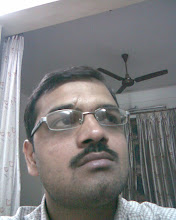Source:
http://www.google.co.in/search?hl=en&q=Krishnammal%20Jagannathan%2C%2082&gbv=2&ie=UTF-8&sa=N&tab=iw
Krishnammal Jagannathan, 82, and her husband, Sankaralingam, 95, have spent a lifetime fighting for the rights of the deprived, especially the Dalits, the former untouchables, who form the lowest rung of India’s ancient caste ladder.
The couple - named Wednesday among the recipients of the 2008 Right Livelihood Awards, often called the Alternative Nobel Prizes -have ensured over decades that thousands of acres of land were distributed to landless Dalit labourers in India’s southern state of Tamil Nadu.
The Jagannathans and their organization, Land for the Tillers’ Freedom, were cited by the awards jury for “realizing in practice the Gandhian vision of social justice and sustainable human development.”
Krishnammal Jagannathan comes from a landless Dalit family and managed to get a university education in spite of her family’s poverty.
“I took a vow in my childhood that I must liberate Dalits, specially women, from the clutches of the landowner,” she said while remembering the troubles of her mother, left a widow at 32 with 12 children.
“Six of them died, but she made every effort to see that the rest of us were brought up with some dignity, and she was poor and not educated,” Krishnammal Jagannathan said.
Despite India’s affirmative action policy, the Dalits are still among the country’s poorest, and a majority of them remain landless labourers and manual scavengers.
Krishnammal Jagannathan said she would use the award money to build “beautiful houses” for the Dalit women who work hard in paddy fields by day and then return to do housework and often are beaten by drunken husbands at night.
“I have succeeded in getting land for 13,000 women,” said the prize winner, who with her husband is to share the 2-million-kronor (300,000-dollar) prize with the three other award recipients. “Now I want for them beautiful homes. The award money will help.”
“The award is a gift for my hard work over a long period,” she added. And a very long period indeed, spanning more than 60 years.
Krishnammal Jagannathan met her husband when she joined Gandhi’s social reform movement in the 1920s. Sankaralingam Jagannathan was born into a wealthy family but left his studies in college to join India’s freedom movement led by Gandhi, of which the social reform element was an intrinsic part.
Gandhi’s philosophy of sarvodaya - which encompasses dignity of labour, an equitable distribution of wealth, communal self-sufficiency and individual freedom - inspired the couple to take up the cause of the rural poor, especially the landless Dalits.
After India gained independence from British rule, the couple joined another Gandhian leader, Vinoba Bhave, in his bhoodan (gift land) movement where the activists walked the roads trying to persuade landlords to give one-sixth of their land to the landless.
The Jagannathans started their work on land reform in Tamil Nadu’s Thanjavur district in 1968 after the Kilvelmani massacre, in which 42 Dalits, mostly women and children, were burned alive in a remote village in the district by a landlord’s hired goons over a wage dispute.
Land for the Tillers’ Freedom was an outcome of the Jagannathans’ decades-long struggle for the landless. It was founded in 1981 with the aim of bringing the landless and the landlord to the negotiating table and to obtain government and bank concessions for loans so the landless could buy land at reasonable prices.
The organization, which is committed to raising the social status and acceptability of the Dalits, also helps the tillers farm collectively and repay loans through cooperative efforts.
And now the group is helping Dalit labourers and farmers build livable houses, one more step in the Jagannathans’ efforts for a better life for Dalits.
While Krishnammal Jagannathan is still active in the organization- she was on a bus travelling between two towns for it when called for this story - her husband is more frail and can no longer move around as before.
But the couple’s efforts continue to receive recognition, including one of the country’s highest civilian awards, the Padmashri.






